
Music has always played an important role in creating visibility, bringing people together under one roof to shake their booties, and consoling the souls of the dispossessed.
From the flamboyant outfits of Bowie and Elton to the no-minced-words approach to lyrics from Janet and Gaga, the spirit of pride has echoed through pop culture.
As pride month heats up, we took upon the impossible task of rounding out the 20 most important albums to shape gay culture – an essential collection of blockbuster classics and subversive selections alike.
Judy Garland, Judy at Carnegie Hall (1961)
How about we take this to the next level?
Our newsletter is like a refreshing cocktail (or mocktail) of LGBTQ+ entertainment and pop culture, served up with a side of eye-candy.
Often regarded as “the greatest night in show business history,” this two-part live recording won the Grammy for Album of the Year, making Garland the first woman to win the award. Rufus Wainwright paid homage to the legend by recreating the concert in its entirety at Carnegie Hall in 2006 (a project which he revisited in 2022 for Judy’s 100th).
Elton John, Goodbye Yellow Brick Road (1973)
Released three years before Elton publicly came out for the first time, this masterpiece is the icon’s most popular album to date, spawning massive hits like “Bennie and the Jets,” “Goodbye Yellow Brick Road” and “Saturday Night’s Alright for Fighting.”
Queen, A Night At The Opera (1975)
Freddie Mercury and Co.’s high-drama magnum opus was completed a week before the band embarked on a tour to support it. The band only had four hours to shoot the music video for lead single “Bohemian Rhapsody” as they needed time to rehearse the setlist before touring.
Diana Ross, Diana (1980)
Miss Ross’ best-selling album marked a change in her sound. After hearing Chic’s music in Studio 54, the diva enlisted Nile Rodgers and Bernard Edwards to help her create a more modern sound. Included on the album is “I’m Coming Out,” a track the pair was inspired to write after seeing a number of drag queens impersonating the singer.
Culture Club, Colour by Numbers (1983)
The British new wave four piece’s sophomore album is the group’s personal favorite. During the group’s height, lead singer Boy George’s flamboyant costumes and sexual ambiguity were the focus of tabloid headlines. Dead or Alive lead singer Pete Burns later claimed he was the first to wear big hats and colorful outfits, to which George famously snapped back: “It’s not who did it first, it’s who did it better.”
George Michael, Faith (1987)
The icon’s debut solo effort won a Grammy for Album of the Year and birthed a string of hit singles, including four number ones: “Faith”, “Father Figure”, “One More Try” and “Monkey.”
Whitney Houston, Whitney (1987)
Several sources close to the star, including her ex-husband and her longtime agent, have confirmed that Whitney had a lesbian romance with her BFF, Robyn Crawford. Whether or not the claims are accurate (Crawford will “set the record straight” in a memoir due November 2019), it’s safe to say that Houston’s catalog is cherished. In fact, two tracks from her sophomore album played pivotal roles in recent queer entertainment: RuPaul’s Drag Race star Sasha Velour went on to snatch the season 10 crown following a jaw-dropping lip sync to “So Emotional” and Pose’s Jamal (played by Ryan Jamaal Swain) won hearts during a dance school audition to the icon’s mega-hit “I Wanna Dance with Somebody.”
Tracy Chapman, Tracy Chapman (1988)
Chapman is a private person and, as such, has never gone on record about her sexuality – but her androgynous style and coffee shop soundtrack appeal have made her a lesbian icon of sorts. Tracy’s politically-charged debut is one of the best-selling albums of all-time, with over 20 million copies sold worldwide.
Cher, Believe (1998)
Cher has spent an illustrious career in pop reinventing herself to the adoration of the gays, and possibly never moreso than in her twenty-second studio album, Believe. This album’s smash-hit title track was one of the first popular tracks to use auto-tune, which opened a sonic Pandora’s box unto the gay music scene forever.
Indigo Girls, Indigo Girls (1989)
The lesbian folk pair, comprised of Amy Ray and Emily Saliers, is known to write their songs separately. Their most popular track, the introspective “Closer to Fine,” was penned by Saliers. Stars including Lisa Loeb, Bonnie Raitt, and Brandi Carlile have taken turns joining the duo to sing the song’s booze-soaked third verse at live shows.
Madonna, The Immaculate Collection (1990)
It would be difficult to find an ally more committed to rights than this tireless warrior – and given that she is the Queen of Pop, it would be unfair to whittle down her musical contributions to just one era. It even feels sacrilegious to only include this 17-track capsule of her best ’80s moments when she followed it with masterpieces like Ray of Light, Erotica and Confessions on the Dancefloor. But given its benchmark as the best-selling compilation album by a solo artist, The Immaculate Collection is a must for any gold star gay’s record collection.
Melissa Etheridge, Yes I Am (1993)
It was widely believed that the singer-songwriter used her album title Yes I Am to confirm rumors that she was a lesbian, but that’s folklore. She had actually written a song with the title for her previous album: “I thought it would be a great song to name an album after. Then, I realized when I came out right before the album came out … ‘Oh, that is going to be interesting. That is going to be really interesting.’”
Janet Jackson, The Velvet Rope (1997)
The icon’s sixth studio album was so explicit in its exploration of queer themes that it was banned in Singapore. On “Free Xone,” she sings of gay and lesbian couples who are “free to be who you really are” and her mega-hit “Together Again” recalls a friend who died of complications related to AIDS. Some tracks even had listeners questioning Jackson’s sexuality: on “Speakerphone,” she has phone sex with a lady friend and her take on Rod Stewart’s “Tonight’s the Night,” in which she doesn’t change the song subject’s gender, suggests losing her virginity to another woman. She shrugged off the rumors, stating, “Am I curious? I think every girl has wondered, more so than a guy. A girl can go there. But I never have.”
Robyn, Body Talk (2010)
Between her delectable dance-pop beats and androgynous appeal, the Swedish pop star won over a cult following with this album. A decade later, the record’s biggest triumphs, “Call Your Girlfriend” and “Dancing On My Own,” are still in regular rotation at gay bars.
Lady Gaga, Born This Way (2011)
Mother Monster solidified her status as a gay icon with this album. While empowering tracks like Katy Perry’s “Firework,” Kesha’s “We R Who We R” and P!nk’s “Raise Your Glass” ruled the charts at the time, Gaga didn’t mince word about the audience the album’s titular anthem was intended for, singing, “No matter gay, straight, or bi / Lesbian, transgendered life / I’m on the right track, baby / I was born this way.”
Troye Sivan, Blue Neighbourhood (2015)
While his sophomore output Bloom gained more commercial success, it’s his enchanting debut that deserves a spot in every queer person’s catalog. From the euphoric anthem “Youth” to the restrained, seductive “Bite,” Blue Neighbourhood is brimming with bops. But it’s the album’s pinnacle, “Heaven,” that cements it as a classic, with lyrics that explore the inner turmoil of queer people with religious roots: “Without losing a piece of me, how do I get to heaven?” the singer questions.
Janelle Monáe, Dirty Computer (2018)
After finding out that she scored a Grammy nom for Album of the Year in real time, Janelle teared up explaining the record’s purpose: “It’s not about me, it’s about a community of dirty computers, of marginalized voices. Being a young black queer woman in America, there was something I had to say. And there was a group of people that I wanted to celebrate and I’m happy to be representing them. I hope they feel seen, I hope they feel heard, I hope they feel loved and I hope they feel celebrated.”
SOPHIE, Oil of Every Pearl’s Un-Insides (2018)
With the marriage of harsh noise sounds and beautiful melodic vocals, trans musician SOPHIE carved out her space as a hyperpop pioneer. The sonically opposed elements of her work and the innovation with which she mended them made this album into something of a benchmark piece in modern electronic music. Sadly, Oil was the sole studio album before SOPHIE’s untimely passing in early 2021.
Kevin Abstract, Arizona Baby (2019)
As hip-hop becomes more inclusive, queer rappers like Mykki Blanco, ILoveMakonnen and Young M.A. are gaining more attention. Rap collective Brockhampton shot to number one on the Billboard album chart with their major label debut, Iridescence, last year and the group’s de facto frontman followed it with this 11-song collection. Abstract doesn’t shy away from his sexuality on the album; in fact, the opening track “Big Wheels” sees the rapper laughing off claims that he’s queer-baiting and declaring he’s a power bottom.
Lil Nas X, Montero (2021)
After coming out at the height of his meteoric “Old Town Road” rise to fame, Lil Nas X went full pedal to the metal with his explicit queerness throughout the entire Montero era. From the salaciously sinful “Call Me By Your Name” video to tongue-kissing men in his live performances, oppositions to Lil Nas X’s queer expression have only ever seemed to spur him on further.
Related: Here are 20 sexy new anthems required for pride party playlists







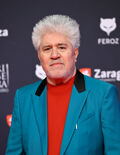

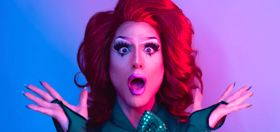

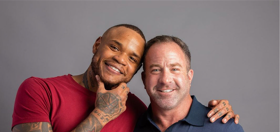

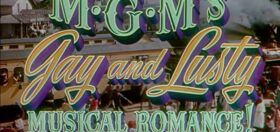
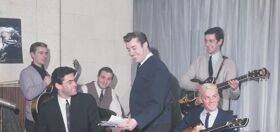


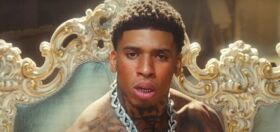



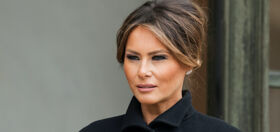
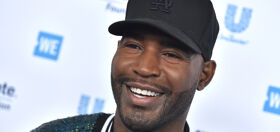
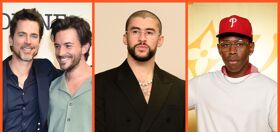
Cam
Didn’t Bronski Beat come out with an album that had a big hit, and had a pink triangle on the cover, and video about a young lgbt kid leaving home and moving to the city??
The movie Pride highlighted that surprised they aren’t in here.
jmckibben
Yes, Small Town Boy, Bronski Beat. Where is Madonna’s album Madonna 1983, Like a virgin 1984. this list is lacking.
Vortece
Of course! “The Age of Consent” was the album. It had 2 big club hits – “Smalltown Boy” and “Why?” and remake of Donna Summer’s “I Feel Love” performed as a duet with Marc Almond from Soft Cell. They did a techno remix in the ’90’s with a different singer (Jimmy Sommerville left in the ’80’s) and Supermode kinda mashed up the chorus of both songs brought it back to the dancefloors around 2005. I didn’t see “Pride,” but they used “Smalltown Boy” in the excellent French film “BPM.”
sfhally
Lou Reed’s “Transformer”
Bette Midler’s “The Divine Miss M”
Gloria Gaynor’s “Honeybee/Never Can Say Goodbye/I’ll Be There”
OzJosh
Yes. All more ground-breaking and influential than any of those listed.
Glynn
What a lazy list. We cannot be confined to 20 albums
everydaynyc
What a lazy comment. While it’s true that we can’t be contained to a list of just 20 albums, I don’t think that’s the point here. This is a fun starting point though. And that’s because it encompasses many generations musically. I think that every gay man and probably woman as well has a “patron gay saint”. A celebrity that usually tends to be a musician that they connected with at an early age or even as they were coming out. And that music will always resonate with a special power for them whenever they hear it. I’m sure you have an artist whom you’ll fiercely defend to the last because they created a song or songs that became an anthem of sorts for you at a crucial point in your life. Music is art an it can inspire and empower us in ways no other medium can. It defines us at our most emotional moments and when we hear those songs ago it can take us back to that place and if we stop and savor those memories we can remember how empowering and what a rush coming out could be. The feeling of liberating oneself is unmatched in life and shouldn’t be forgotten. U fortunately as gay men we’ve been conditioned to be forever seeking the new next best thing and as time goes by we become rather immune to the joys of the memories like our coming out processes. They say that on average a human stops actively following modern current music artist and trends at about age 33. Other things like life, career, love, family just naturally crowd out the need to be up to date musically. That and the music world evolves and changes so quickly it becomes almost impossible to track after a while especially after you’ve already developed a fondness for some artists.
For me Janet will always be a guiding light in my life. She’s an amazing artist but even more so an amazing human who has consistently made social issues like lgbtq rights, social inequality, and domestic abuse part of her body of work. It’s something she has always done where many other artists don’t even give the idea a passing thought.
What’s actually great about this list is that includes such a broad swath of artist that span many decades. While I’ve always been aware of Judy she was a bit before my time so hearing specifically about this album has educated me as I wasn’t familiar with it before and it’s relevance to gay culture. The same is true with some of the more modern choices here. While I actually love and have followed Janelle Monae for several years now, I’ve only just become aware of Abstract a few months ago and didn’t even realize he was gay. This list is completely subjective of course but to claim it’s lazy does it a big disservice and comes off making the person who made it sound somewhat jaded or that they are unimpressed. To that I would simply ask if you are familiar with every album on this list? Because I have strong suspicions that there are going to be precious few if any who read the article and don’t learn something new if not becoming aware of an artist altogether for the first time. How can learning something new ever be considered lazy?
Perhaps if anything this list and article would be improved upon by making it larger… Maybe the top 50 or top 100 even like Logo once did with the top 100 Queer films of all time a few years back. But its really a great starting point despite it’s limited scope. Prides a time to reflect on where we have been and how far we’ve come, and to celebrate those successes together. In a world that’s getting ever increasingly pessimistic maybe we veteran queers can use the month of June to try to be more optomistic about things. Being gay at it’s heart was always about a certain type of joy. As we get older I think we slowly turn our backs to that simpler time and emotion. Maybe pride is a good time to remember to re-embrace it in our lives… Sorry for the lengthy response and Happy Pride!
Anthony
Dear everydaynyc,
What an absolutely wonderful response! Thank you so much. Happy Pride!
Glynn
Well ‘everydaynyc’ you nailed me good and proper. I am ancient enough to remember Judy Garland. I also witnessed Ziggy playing guitar. I unashamedly adore dancing on my own with Robyn, and yes Janet is by far the best Jackson. In recent months Troye and Janelle have both left delicious earworms in my head to savor. Art indeed.
My trouble is I found the list rather ‘Now That’s What I Call LGBTQ Music’. That is to say, a bit predictable, obvious and confined. Queers (and their peers) have had an immense impact on the music world. In the past our stories where hidden subtly between the quavers, testing our gaydar, whilst other delights were easier to spot – Andy Bell, Alison Moyet, Johnny Mathis, k.d. lang, Olly Alexander to name a few.
I can think of no better starting point to discovering our queer musical heritage than reading Martin Aston’s terrific 2017 book ‘Breaking Down the Walls of Heartache: How music came out’.
It starts way before Judy Garland and It certainly adds a couple of zeros to the listed 20 above.
Back at the list – Elton in 73 was just being Elton writing great pop songs. Whilst he looked flamboyant, and was name checking an iconic gay road (the yellow brick one, from you know where) the album itself is as straight and safe as any other soft rock album in the charts in 73.
The tabloid press where vile to him most of the time in the 70’s and 80’s but despite the knockers he now appears to be a grand queer ambassador.
Now……. where can I find Peach on 12 inch?
Joyous Pride to you too 🙂
Andrew
Thank you for the book recommendation ‘Breaking Down the Walls of Heartache: How music came out’.’ just bought a copy. NB: I would’ve liked to have seen Kylie’s Light Years album get a mention in the list.
LumpyPillows
While there are many more albums one could add not this list, it’s not a bad list. Depeche Mode, Dead or Alive, Frankie Goes to Hollywood, the afore mentioned Bronski Beat…
dennynova
What no Pet Shop Boys “West End Girls”? “Frankie Goes to Hollywood”? Wham “Careless Whisper”? David Bowie “Let’s Dance”? Anything…ANYTHING…by Bette Midler? The Weather Girls “It’s Raining Men”?
truckeralex
PSBoys, Erasure, Bronski Beat, for sure
mz.sam
Why Queerity has not reported on the terrorist shooting and a Queer club in Oslo, Norway this week of Pride month? This is tragic and just as important as the Pulse Nightclub shootings.
butchqueen
Thank you for mentioning this!
LumpyPillows
They must not have found a source they could cut and paste, journalists they are not.
white-queer-african
Off topic cupcake.
ScottOnEarth
I’ve read many times how displeases (possibly horrified) Diana Ross was that “I’m Coming Out” became a gay anthem, so let’s not with her or that album. And, while all of these lists are subjective, no such list would be complete without mentioning at least one album from the incredible Kylie Minogue, a true international gay icon.
butchqueen
HEAR, HEAR!!!
Eternal.Cowboy
Nile Rodgers, the guy who actually wrote the song, wrote it while in a gay bar. So Diana Ross may not like but the song is a gay anthem.
Mario
I give an A+ to Judy, Boy George, Madonna, George Michael, and Cher.
The Pet Shop Boys, Bronski Beat, and ABBA (“Dancing Queen”) should also be applauded.
fimij91404
I am making $150 every hour by working on the web at home. A month ago I have gotten $19723 from this activity. This activity is exceptionally astounding and its normal income for me is superior to anything my past office work. This activity is for all and everyone can without much of a stretch join this correct now by utilize this link.
Copy Here >>> boosterstart.com
Oranos
These are all good albums, but it is quite an exaggeration to claim that they were “essential” in shaping LGBTQ culture.
Why not include Lola, by the Kinks, or Walk on the Wild Side by Lou Reed? Or Johnny Mathis??
I’d like to see a better argument than this one for something “reshaping” an entire culture. As an argument, this is pretty weak and unsubstantiated. It would not stand up to close scrutiny, methinks.
Eternal.Cowboy
Those are singles not albums. Both were also inspired by Candy Darling so we might as well add Candy’s Room by Springsteen in that list. But I agree with your point, this list is kinda meh. I’d include Jayne County, Against Me!, Pansy Division, The Germs…. the list just goes on.
Neoprene
Led Zeppelin I, II, III and IV
dfwguy
The first ‘Village People’ LP way back in July 1977. It was an ‘in your face’ , we are gay, go f yourself album that our community was proud to call our own. Since then it has been parodied a million times and a bit of a joke, but back then hearing it for the first time , it was fierce.
BiggieB
And yet the number of times the members of the group denied being gay…
Mark Behar
Sylvester?? Martha Wash and the Weather Girls/Two Tons o’ Fun??? Lots of omissions.